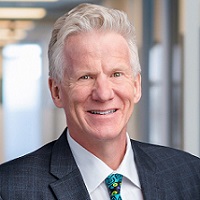 By Nick van Terheyden aka Dr Nick, Principal, ECG Management Consulting
By Nick van Terheyden aka Dr Nick, Principal, ECG Management Consulting
Twitter: @drnic1
Host of Healthcare Upside Down – #HCupsidedown
There’s a reason why medicine serves as a common backdrop to successful television shows. Depending on your age, you may remember the likes of Dr. Kildare, General Hospital, St. Elsewhere, MASH, Scrubs, House, Gray’s Anatomy, and of course, ER. The practice of medicine is filled with drama and uncertainty, often unfolding as a detective story.
Clinicians are ultimately medical detectives, and like other investigators, they need data to solve mysteries. But the volume of data available to physicians has become a deluge, overwhelming clinical practice. Despite the advantages offered by digital health technology, accessing and applying the right information requires time—a commodity in very short supply for clinicians. How do we balance time spent with our patients and time spent as a digital detective, gathering the necessary data to inform our insights and decision-making?
Episode NOW on Demand
“Clinicians are also people in real life. They utilize best-in-class consumer experiences, like Amazon, Peloton, Apple, etc.,” notes Matt Titus, Vice President and Chief Commercial Officer at epocrates. “But when you make the flip over to their professional lives, healthcare is not quite there yet, in terms of the customer experience of how they navigate these things. So the first thing is to make better tools that are easy to use, [that make it] easier to find information.”
Technology is giving physicians access to more data than ever before, but the time spent parsing that data is causing clinicians to work even longer hours. On this episode Matt talks about creating the types of tools that make providers’ lives easier, not harder. Here are a few excerpts.
Is telehealth creating more work for providers?
“Every year, we work with a consulting company to survey healthcare providers. One of the alarming pieces of data that came out of our most recent survey from last year is that clinicians, as an unintended consequence [of using more technology], are actually working longer hours. They’re spending more time searching for information than they have in previous years. Our data tells us that the average clinician in 2020 was seeing around 107 patients; in 2021 that went down to 104 patients, but the demands on their time went up. We found that total working hours of clinicians involved in telehealth were 16.1 hours per day, and hours for nonusers of telehealth services were 14.7. It’s not sustainable to ask someone to work 15 or 16 hours per day, especially in a profession that’s experiencing a lot of burnout.”
Making tools smarter.
“The world has changed and the speed of medicine has changed. That’s been largely due to technology. Clinicians have to evolve as well. We’re asking clinicians to be technologists at the point of care across many surfaces and many different resources. And as a whole industry, we have not done a good job of consolidating that experience. They’re really trying to triangulate 678 types of information, and that is leading to burnout. We can lessen that burden by making smarter tools. Our goal here at epocrates is to streamline that process and provide reliable information so clinicians aren’t looking at 8 to 10 different areas to try to find the right answer.”
Giving clinicians a voice in decision-making.
“We have to make technologies that make it easier, provide that safety net, but also provide an easy way to get additional information, learning, etc. Medicine is moving faster than it ever has before due to technology. We can’t leave healthcare providers behind. They have to be at the forefront of creating tools and technologies that allow them to maximize their training, their real-world knowledge, and seeing the patient in front of them. That is a recipe for success in healthcare, and we can’t do that without the voice of the healthcare provider at the table.”
About the Show
The US spends more on healthcare per capita than any other country on the planet. So why don’t we have superior outcomes? Why haven’t the principles of capitalism prevailed? And why do American consumers have so much trouble accessing and paying for healthcare? Dive into these and other issues on Healthcare Upside/Down with ECG principal Dr. Nick van Terheyden and guest panelists as they discuss the upsides and downsides of healthcare in the US, and how to make the system work for everyone.
This article was originally published on the ECG Management Consulting blog and is republished here with permission.
